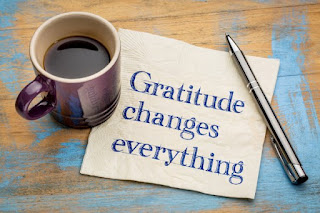Misbehavior is defined as "the act of misbehaving; bad behavior." I will be honest; I don't like the word misbehavior for a couple of different reasons. First and foremost, it has been said that "Thinking your child is behaving badly disposes you to think of punishment. Thinking of your child as struggling to handle something difficult encourages you to help them through their distress." Secondly, I have found when we think our child is misbehaving there is an assumption, they are intentionally doing something wrong and have the ability to do something more appropriate. The reality is most of the time when our kids misbehave, they are struggling with something and need our help. For the purposes of this blog, I am going to use the term misbehavior to help illustrate how children's strengths are often hidden in their misbehavior.
Think about when and how your child typically misbehaves. Usually, our children misbehave when they are trying to get something they want or avoid something they don't want. It makes sense that if your child is trying to get something they want or avoid something they don't want, they will utilize their strengths. Again, I want to caution that even though your child is using their strengths, they are probably not intentionally doing something wrong, or they lack the ability to do something more appropriate. At my houses this meant different things for each of my kids. My oldest daughter was a talker, and she would engage us in an argument until we wanted to scream. And sometimes we did! My middle daughter was a physical kid. This meant she would often grab or hit. My son used his emotions. He would cry big old crocodile tears. I would like to tell you that I was always able to reframe the ways I saw these behaviors to see them as strengths but that was not always the case. I fell into the trap that is so easy for parents to do. I got caught up in the frustration I felt over these behaviors and tried to stop them through punishment instead of harnessing them as a strength to help my child overcome their distress.
So, what does this mean for parents? We need to reframe how we think about misbehavior. Parents need to shift their focus from what is wrong with the behavior to seeking out the strengths that their child is utilizing in the moment. Once we do this, we can help our child use those strengths in a more positive and constructive way.
It is important to remember that in the moment of misbehavior, your child might not be ready to shift to using their strength in a more appropriate way. Parents need to connect with their child to make them feel safe and loved in these moments of misbehavior. Think about what helps your child feel calm. Some kids need physical affection; others need their emotions named; and others need time and space to work through their emotions with you nearby. Providing this connection with your child can sometimes feel like you are rewarding bad behavior. You are actually getting them ready to learn so you can teach them how to use their strength in an appropriate way.
Once you have connected with your child it is time to help them think about how to use their strengths in a different way. My 15-year-old son is a champion complainer. One of his chores is to unload and load the dishwasher a few times a week. He conveniently "forgets" to do his job, until he is reminded. He really dislikes it when I tell him he has to do the dishes right now or at a specific time. This typically leads to a lot of complaining. I have some choices when he starts to complain. I can ignore him or argue with him about how he doesn't have too many chores or give him more chores for complaining. Believe me, I have tried all of these things but none of them motivate him to do his chore without me getting involved. So, instead let's reframe this misbehavior into a strength. Children who complain are aware of problems and have the potential to be good problem-solvers. Taking a strengths-based approach to our chore problem could look like this: "I have noticed you have a problem with me telling you when to do the dishes. You like to be in charge of when that happens. What solutions do you have so you do the dishes without me nagging you?
A common problem parents of younger children face is kids avoiding picking up after themselves. They are determined to move onto the next fun activity. We can recognize their determination and reframe it as a strength. "You are determined to go outside. I wonder how quickly you could pick up your toys if you used your determination to do it. Then we can go outside."
What are the hidden strengths in some common misbehaviors? Connected Families provides the follow list to help parents recognize their child's strengths:
- Arguing/Backtalk-Honesty, strong feelings/opinions, confidence
- Bossiness/Strong Will-Leadership, assertiveness
- Complaining-Awareness of problems, potential for good problem-solving
- Defensiveness-Strong sense of right and wrong
- Impulsiveness-Energy, living in the moment, quick responses
- Lying-Creativity, good memory, desire to keep the peace
- Stubbornness-Determination, intensity of focus
- Whining-Persistence, insight into people (and what makes parents give in)
- Yelling-Expressiveness, desire to be understood









